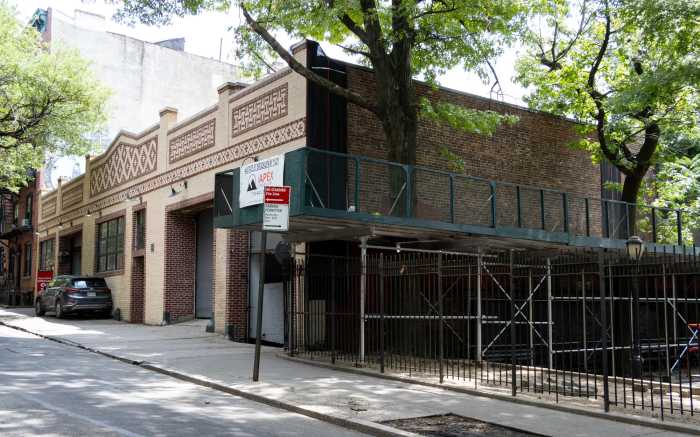Brooklyn’s real-estate market — already red hot for the last 20 years — has gone truly insane. Here’s the latest evidence:
• As we report this week, someone paid $2.4 million for a two-bedroom apartment in DUMBO — a once forlorn part of the borough. Yes, $2.4 million — and no outdoor space, even!
• Basketball legend Magic Johnson showed off his development company’s conversion of the Williamsburgh Savings Bank building, in Fort Greene, into luxury condos last week. A penthouse there sold for $3 million.
• We recently got a sneak preview of a renovated warehouse at 99 Gold St., in Vinegar Hill, where studio apartments — ones without city views, even! — are going for $710,000.
The selling point of the building — marketed as “Brooklyn’s Gold Coast” — is an indoor basketball court in the basement. So for $710,000, you get a zero-bedroom apartment, plus all the basketball you can play. Then again, you could join a pick-up game in the city housing project that is just a half-block away.
• One Red Hook couple bought a fairly basic house for $1 million in the hot neighborhood. Yet this week, Martha Stewart showed up to christen one of the cruise ships, proving to us that the neighborhood has already jumped the shark.
• Even the old Board of Education headquarters at 110 Livingston St. in Downtown Brooklyn — long considered the area’s black hole — has been converted into 300 luxury units. Now you can spend $1 million or more to live where bureaucrats used to log teachers’ sick days.
It’s hard not to be taken in by the excitement, but not everyone is a winner.
Buyers of multi-million–dollar condos in DUMBO and other hot neighborhoods will get generous city subsidies known as 421-a tax-abatements. The result is that the rest of us taxpayers are essentially subsidizing their purchases.
And owners of existing coops and condos will see their already unfairly high real-estate tax bills rise still further.
Decades ago, when co-op (and later condo) living was seen largely as the province of a limited number of rich Manhattanites, politicians created an inequitable system of taxing co-ops and condos at a much higher rate than traditional homes, whose residents constituted a more-powerful voting bloc.
Now that co-op and condo living is widespread throughout the city, it’s time to end this inequity.
When it comes to giving people a tax break, New Yorkers should share the wealth.























